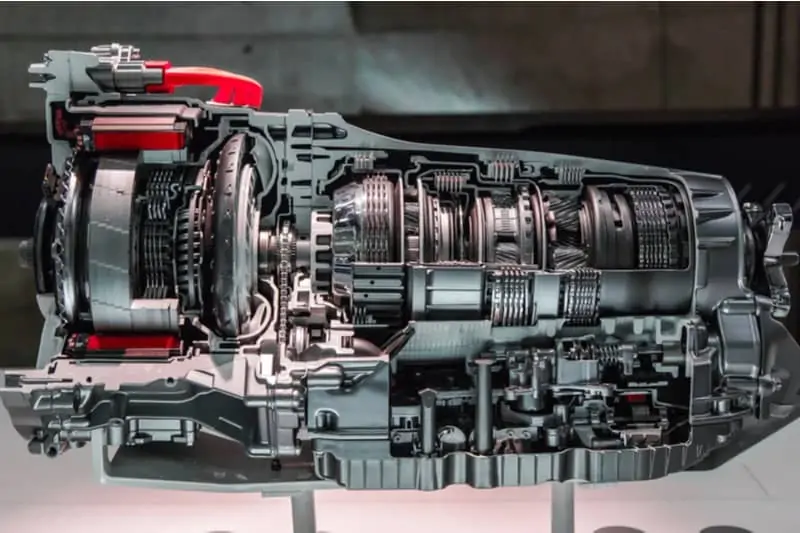BMW Series 5 Transmission Problems
What You Need to Know and be on the Lookout For
For many consumers, BMW cars have become synonymous with luxury and elegance, as well as performance and craftsmanship. While its engines are paramount to the BMW’s performance, so is the transmission. Engines and transmissions go hand in hand. The transmission is responsible for changing the gears of the engine, thereby making the car go, and for BMWs specifically – get going fast (if that’s your driving style).
The transmission plays an important role in the reliability of any vehicle, so it’s a key item that any consumer should look at when inspecting a car for purchase. BMWs are known for having excellent engines and transmissions; however, some consumers have reported transmission problems with the BMW Series 5 models, specifically.
We’ll explore what those common issues are and what you need to be on the lookout for in order to diagnose whether your Bimmer is possibly suffering from a transmission problem.
If you are considering buying a used car that has under 140,000 miles and is a 2012 model or newer, get a free quote for one of our "extended car warranty solutions".
100% Online, 9 Coverage Options and No Robocalls!
Transmission Talk
The transmission is one of the most complicated components of your car. It’s a metal case that houses a series of gears, which is where the name “gearbox” box comes from when referencing the transmission. These gears and how they shift from one to the other are important because they tell your car how much power to draw from the engine, applying that power to the wheels of your car so that it can accelerate properly.
Regardless of whether the car has a manual transmission or an automatic one, gears need to change in order to move the car forward and accelerate. The transmission facilitates this process by changing the gears of an engine. In a manual transmission, you’ll start in first gear and as you accelerate, you’ll shift into second, then third (and so on) as you increase speed. In an automatic transmission the same process is applied but done so automatically with the help of a torque converter.
Unless you’re looking for an older BMW, manual transmissions are limited in newer Bimmers. For the most part, BMW has done away with the manual transmission, but there are still a few offering the stick: 230i coupe, M240i coupe, M2, 430i, 440i and M4. As a previous generation, the Series 5 BMW does offer a 6-speed manual option, in addition to the popular 6-speed automatic.
In the U.S. we prefer automatic, however there are some driving enthusiasts that prefer the connection to the car that a manual transmission offers. Today, only about two percent of new cars sold in America come with a manual transmission. To shift or not shift is a personal preference, but unless you’re living abroad, we tend to prefer the ease and convenience of the automatic.
Series 5 Transmission Problems Commonly Reported
The latest models of the BMW 5 Series sedans, which began its production in 2010, have encountered some transmission issues affecting both the manual and automatic versions.
Rough shifting has been a consistent complaint and the most telling woe. Consumers have also noted that their Bimmer will jerk while downshifting or act as if the transmission slipped a few gears. Other complaints include a loud thumping noise as the car shifts, decreased speed while driving, and an overall jerky ride. And what’s just as concerning, consumers have said that the “Transmission Failure” indicator light does not illuminate or warn them that there is an issue with the transmission.
Because the transmission component is complex, there may be many reasons for these complaints. It could be as simple as the transmission fluid needs to be replaced or an issue in the computer system requires either a system reset or an update. In more complicated scenarios, these symptoms could indicate that the transmission is failing. In either case, the “Transmission Failure” indicator should be illuminating, and it is not.
If the issue does cause the car to display a transmission-related error, the car will go into safe mode, also called limp mode, and the transmission will no longer shift.
Here are some other indicators that your BMW may be having transmission problems.
- You are experiencing erratic shifting or no shifting at all.
- There is a bumping or thumping in one or more gears.
- The transmission is stuck in a gear.
- The transmission is slipping.
- Shifting into a gear is hard and/or not smooth.
- You’re able to rev the engine, but the car does not shift.
- There is a lag between gears.
- You receive any of the following error messages:
- Transmission malfunction drive moderately
- Transmission failsafe program warning
- Gear ratio codes, such as P0730
As noted, the transmission is a complex component that is critical to any vehicle, so if you believe you may be experiencing a transmission-related problem in your BMW, it is best to get it into the shop quickly. If you’re not taking your BMW to the dealership for repairs, make sure to look for a BMW-certified repair shop. BMW repairs have specific requirements, and if you’re dealing with transmission issues, you’ll want a mechanic who knows how to work on the BMW transmission.
BMW Transmission Repair Costs
The transmission is essential for a vehicle to run, but because it is such an intricate piece of machinery made of many different components, it is one of the most expensive services a shop can perform. Lots of parts go into it, which impact the cost, leaving you with a potentially expensive bill. The average cost to repair a BMW transmission is anywhere from $1,800 to $5,000.
Many factors will impact the cost of your transmission repair, namely the type of repair needed and the amount of damage. If the damage is severe, you should expect to pay more. Another factor is labor. Different shops will charge more for labor, so shop around.
When repairing a transmission, there are some options that you can consider, such as repairing it with a used transmission, or rebuilding your current one. You could also consider using a remanufactured BMW transmission. As with anything, each option has its advantages and disadvantages, so you’ll need to ask lots of questions to ensure you make an informed decision and one that is best for your wallet.
Pro Tip: Don’t settle on the first quote you receive (even if it is from a BMW-certified repair shop). There are other BMW-certified establishments, so get multiple quotes. And ask the shop to detail both the parts and labor costs so that you can compare apples to apples.
Keeping Your Transmission in Good Shape

- Have the transmission fluid checked regularly. It’s a good idea to have your transmission flushed every 50,000 miles.
- Use only transmission fluid that is made for BMWs.
- Check the transmission filter regularly.
- Keep your cooling system in check – make sure you have enough coolant to avoid an overheated engine, which can also affect the transmission.
- If you’re in a manual car, change the gears carefully.
- If you’re in an automatic, don’t change gears while driving.
- Use the parking brake when parked at an incline.
- Warm up your car before you drive away, especially when it’s cold outside.
- Invest in an annual transmission inspection.
Don’t Let Your Transmission Get You Down – Get olive®
We hope you don’t ever have to deal with an unexpected breakdown due to transmission failure in your BMW, but in the event that the unfortunate does occur, you’ll want to ensure you’re covered with an extended warranty.
Introducing olive®
olive® is shaking up the way drivers look at “extended car warranty” solutions. olive® offers Mechanical Breakdown Insurance plans in case of an unfortunate breakdown. In general, below is an example of items covered under extended warranties.
Steering System
Electrical Components
Engine Assembly
Drivetrain
Transmission
Exhaust Systems
Alternators, Manifolds, Pumps
Heating and Cooling Assembly
With olive®, you’re covered, and you can get a quote online easily and be protected the very next day. Here are some of the benefits you can look forward to:
No waiting period
Start coverage up to 140,000 miles
No yearly mileage limits
Coverage across the U.S.
Manageable monthly payment options
Cancel anytime
Our products, customer service and reputation for excellence have earned us an A+ rating with the Better Business Bureau, and we have partnered with some of the insurance industry’s largest companies to back us.
Get olive®, and get covered.



